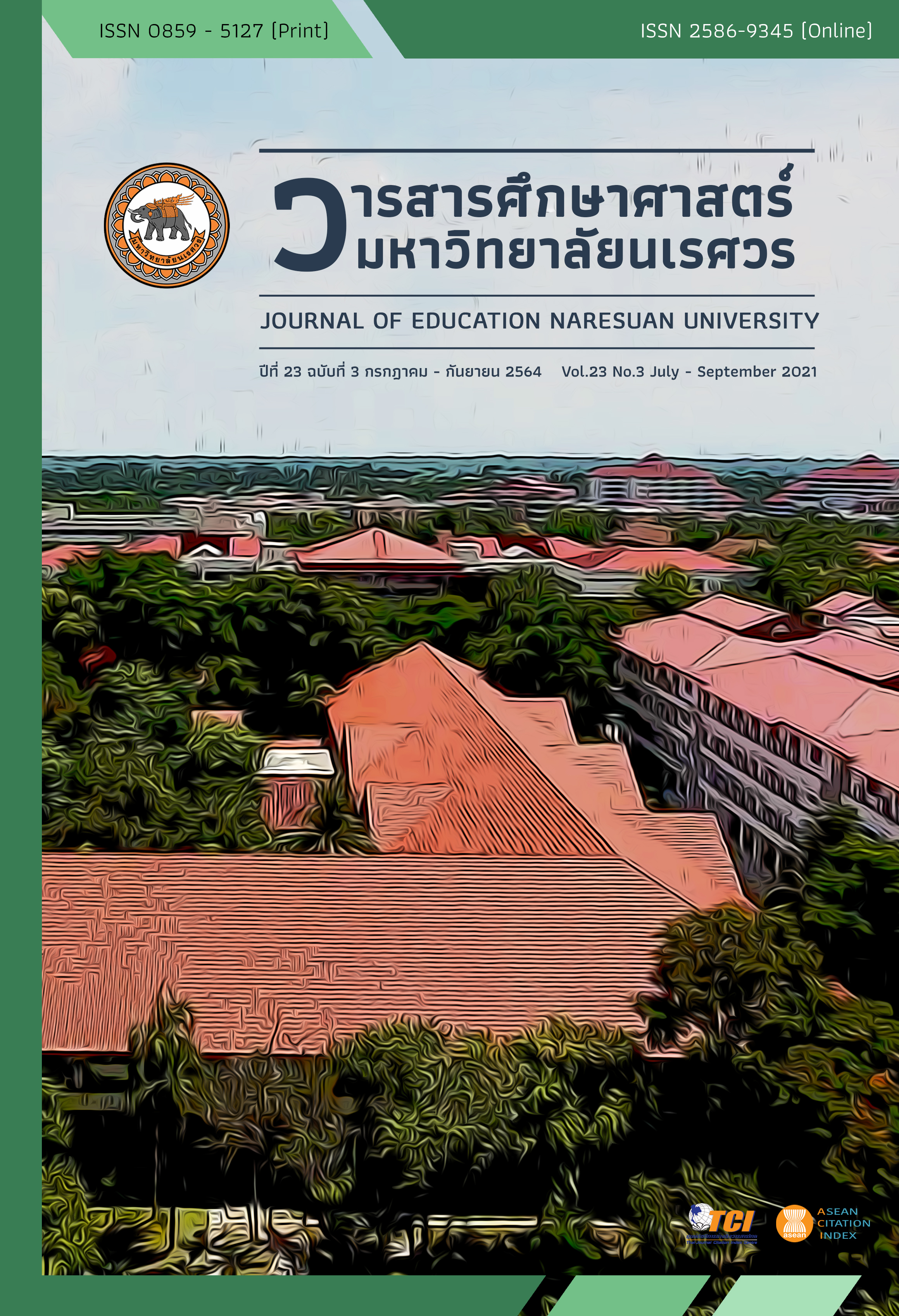THE DEVELOPMENT OF SCIENTIFIC CONCEPTS IN ORGANIC COMPOUNDS BY USING MODEL-BASED LEARNING FOR GRADE 12TH STUDENTS การพัฒนาแนวคิดทางวิทยาศาสตร์ เรื่อง สารประกอบอินทรีย์โดยใช้แบบจำลองเป็นฐาน ของนักเรียนชั้นมัธยมศึกษาปีที่ 6
Main Article Content
Abstract
The objective of this research was to study how to teach using model-based learning to promote the development of scientific conceptions on organic compounds of 40 Grade 12 students, in a large secondary school in Lopburi province. The researcher used 4 cycles of classroom action research. The Model-Based Learning consists of 4 steps; 1) model generation, 2) model evaluation, 3) model modification, and 4) model elaboration, and carried out data collection using the teaching notes and scientific concept test. The researcher categorizing students’ responses into 5 categories and used content analysis and method triangulation to analyze and improve the teaching approach. The findings indicated that the teaching with model-based learning, the students showed more partial understanding than specific misconception. The students can writing, explaining, presenting, discussing and answering questions. The highest of sound understanding is carbon bonding and specific misconception is isomerism.
Article Details
The owner of the article does not copy or violate any of its copyright. If any copyright infringement occurs or prosecution, in any case, the Editorial Board is not involved in all the rights to the owner of the article to be performed.
References
Faikhamta, C. (2011). Teaching Method for elementary school. Bangkok: April Printing. [in Thai]
Faikhamta, C., & Supatchaiyawong, P. (2014). Model-based learning. Kasetsart Educational Review, 29(3), 91-93. [in Thai]
Gülten, S., Özge, Ö., & Melis, A. U. (2011). A study of determination of pre-service chemistry teachers’ understanding about acids and bases. Procedia Computer Science, 3(1), 52–56.
Khongton, T. (2014). Enhancing achievement of learning in organic chemistry topic of Mathayomsuksa 5 students by model-based learning (Master thesis). Bangkok: King Mongkut’s University of Technology Thonburi. [in Thai]
Kijkuakul, S. (2014). Science learning for 21st century teacher. Phetchabun: Juldis Printing. [in Thai]
Nakhleh, M. B. (1992). Why some students don’t learn chemistry. Journal of Chemical Education, 69, 191-196.
Vichaidit, P. R. (2018). Learning management of chemistry for learners in 21st century. Lopburi: Lopburi Design. [in Thai]
Simpson, W. D., & Marek, E. A. (1988). Understanding and misconceptions of biology concepts held by students attending small high schools and students attending large high schools. Journal of Research in Science Teaching, 25(5), 361-374.
Tyler, R. (2002). Learning for understanding in science: Constructivism/conceptual–change model in science teacher education. Science Education, 80, 317-341.


